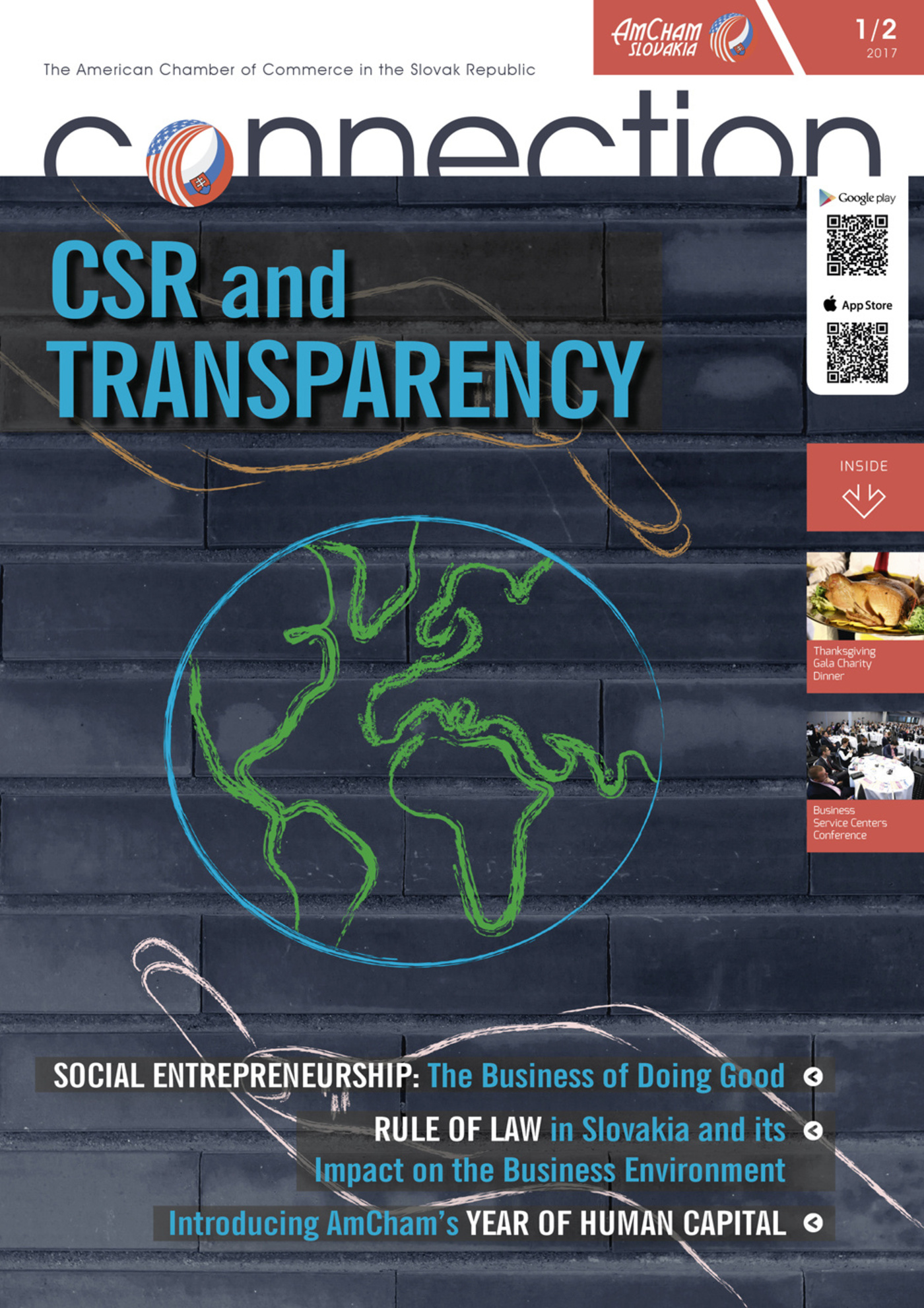There is a similar pattern in business life: the quality of products is increasing and there is a strong push to provide an ever higher level of services and deliver better financial results every year. Why is there a need for Corporate Social Responsibility (CSR)? Is it cost efficient to be a socially responsible company? Is it just a trendy term, another way of promoting the company, or an important part of a company’s identity?
CSR – how to do business
There are many different definitions of CSR. Many of us understand CSR as a philanthropic concept, support for non-profit organizations, or as a simple spend of funds on social purposes.
CSR represents a way of running a business and not just an expense, or a use for surplus funds.
The way to be responsible towards key CSR stakeholders is to be responsible in day-to-day business life – see picture
CSR is an important part of a company’s identity and should include all stakeholders, whatever the company’s size, sector or country of activity. All business activities impact at least one of the stated areas (i.e. energy consumption, behavior towards employees, etc.). But there is also a significant impetus from all areas towards business activities (a preference for socially responsible suppliers, promotion of volunteering by employees, etc.).
CSR – an increasing need in business life
There is no country worldwide that is not experiencing an increasing need for CSR in the social and environmental areas. This is a result of the rapid changes taking place globally. In developed and in less-developed countries, indeed everywhere, we all need support, and there is no country where the environment could not benefit from more sustainable business practices.
Over the last decades, business has begun to reflect these changes. Recently, we have seen growing interest and attention from investors, consumers, universities and media in CSR. “Impact investing” and “conscious consumerism” are getting more and more important. Impact investing refers to investments “made into companies, organizations, and funds with the intention to generate a measurable, beneficial social or environmental impact alongside a financial return” (Wikipedia). “Conscious consumers” are influencing business activities by purchasing products and services produced in a responsible way.
In the future, only social responsible companies will be able to hire the best employees and meet rising customers’ expectations as regards products and services. CSR, as a part of a company’s identity, will be a must in order to differentiate companies from less-responsible businesses and be accepted by the public, investors, employees, internal and external customers, suppliers and the community.
CSR – key benefits vs. budget restrictions
CSR, as an important principle in day-to-day business, is not acknowledged by everyone (“business-to-business” approach). The key benefits resulting from CSR in day-to-day business are:
- Better relationships with customers and suppliers (including winning new business and increasing customer retention)
- Increasing employee satisfaction (happy employees, better hiring potential, retention, etc.)
- Cost savings (energy and operating costs reduction, risk management)
- Innovation (more sustainable products/services)
- Differentiation from competitors
- Brand reputation, positive publicity
- Long-term sustainability for the business
Based on the above, we can see it is not correct to consider CSR as “merely a budget item” or “less efficient PR”. There are many CSR opportunities where only willingness and time is needed (i.e. to organize fun events for disabled kids, combine team building with restoring castle ruins).
CSR – employees are the most valuable factor for business success
The employee is a strategic partner at every company and a key driver for business success. The most successful companies have happy, engaged, open-minded employees. There is no vision, mission or business plan which can be put in practice without the key success driver – employees.
CSR, as an important part of a company’s identity, creates new opportunities for employee growth and engagement. The best companies have benefit packages for employees and CSR can be considered as added value for employee development. A CSR-engaged employee will like the company they work for, and be proud to be a part of the team, which will have positive feedback effects, and is the best recommendation for future hiring. Every employee has feelings, has emotions, wants to help and needs to be helped. There is a Chinese saying that: “If you want happiness for an hour, take a nap. If you want happiness for a day, go fishing. If you want happiness for a year, inherit a fortune. If you want happiness for a lifetime, help somebody.”
The benefits of CSR-engaged employees are:
For employees:
- good feeling from helping where there is a need
- using professional skills in a different area
- development of new skills, knowledge and creativity connected with work in a new environment
- new contacts, networking
For the company:
- personal growth of employees in a different work environment
- creating potential leaders with emotional maturity
- development/improvement of corporate culture and positive team spirit
- meaningful help provided for the community and corporate responsibility principles adhered to
Eugen Mladosievič, Manger for Corporate Social Responsibility, Business Continuity Planning and Data Privacy, Adient Slovakia s.r.o.



Follow us